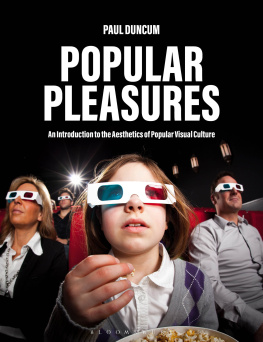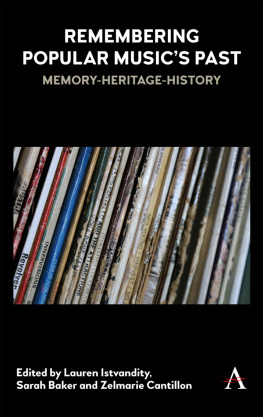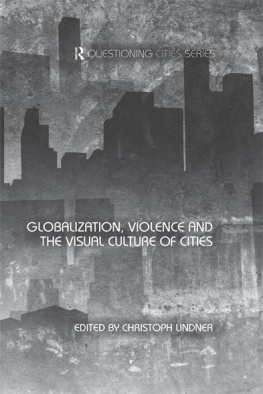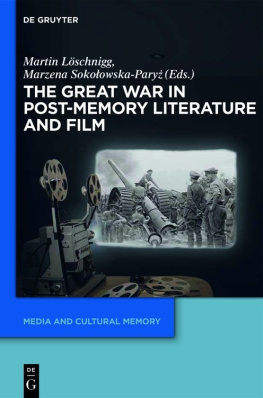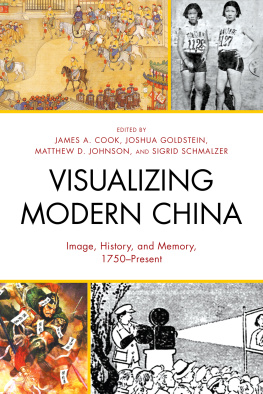Rebecca Bramall lectures in media and cultural studies at the University of Brighton. Her research interests lie in cultural theory, popular culture and twentieth-century British history. Bramalls current research examines discourses of austerity, drawing on debates about history, heritage and memory, and emergent work on ethical consumption and the environment. The Cultural Politics of the New Austerity is forthcoming from Palgrave Macmillan (2013).
Geoff Eley is Karl Pohrt Distinguished University Professor of Contemporary History at the University of Michigan, Ann Arbor. His most recent works include Forging Democracy: The History of the Left in Europe, 18502000 (2002); A Crooked Line: From Cultural History to the History of Society (2005); (with Keith Nield) The Future of Class in History: Whats Left of the Social? (2007); and Nazism as Fascism: Violence, Ideology, and the Ground of Consent in Germany, 19301945 (2013).
Martin Francis is the Henry R. Winkler Professor of Modern History at the University of Cincinnati. His most recent monograph is The Flyer: British Culture and the Royal Air Force, 1939-1945 (Oxford University Press, 2008). He is currently researching the cultural history of the Desert War, the novels of Robin Maugham and representations of King Faruq of Egypt in British and American culture.
Frances Houghton is currently completing a PhD at the University of Edinburgh. She is researching published post-war memoirs of British Second World War servicemen, focusing particularly on the experience and remembrance of frontline combat.
Lucy Noakes lectures in history at the University of Brighton. She researches in the fields of gender, war and memory, with a particular focus on the social and cultural history of Second World War Britain. Publications include War and the British (1998) and Women and the British Army 1907-1948 (2006). She is currently researching death, grief and bereavement in Second World War Britain.
Juliette Pattinson, who is a Reader in History at the University of Kent, is a socio-cultural historian of the Second World War with particular interests in gender and personal testimonies. Publications include Behind Enemy Lines and an edited collection with Ben Shepherd entitled War in a Twilight World. She is currently writing a monograph on the First Aid Nursing Yeomanry and is embarking on a new project with Arthur McIvor on men who were in Reserved Occupations.
Corinna Peniston-Bird lectures in history at Lancaster University. She researches in the fields of gender, war and memory, with a particular focus on the social and cultural history of Second World War Britain. Publications include Contesting Home Defence (with Penny Summerfield, 2007) and History Beyond the Text (with Sarah Barber, 2008). She is currently researching gendered commemoration in Great Britain.
Penny Summerfield is Professor of Modern History at the University of Manchester. She has published widely on the social and cultural history of the Second World War including Reconstructing Womens Wartime Lives: discourse and subjectivity in oral histories of the Second World War (Manchester, 1998) and (with Corinna Peniston-Bird) Contesting Home Defence: Men, Women and the Home Guard in the Second World War (Manchester, 2007). Her current project is on the popular memory of the Second World War in Britain since 1945.
Wendy Ugolini lectures in British History at the University of Edinburgh. Her research interests lie in the field of war, identities and memory and she is currently researching constructions of Britishness within the army during the Second World War. Her book, Experiencing War as the Enemy Other. Italian Scottish Experience in World War II, was awarded the Gladstone History Book Prize 2011.
Janet S. K. Watson is Associate Professor of History at the University of Connecticut. Her first book, Fighting Different Wars: Experience, Memory, and the First World War in Britain (Cambridge University Press, 2004) won the Tomlinson Prize for the Best Work of History on the First World War. She is currently completing a project, Telling War Stories, that uses Second World War commemoration to examine British politics and society.
This book developed out of an international, interdisciplinary conference held at the University of Brighton in 2011: The Second World War: Popular Culture and Cultural Memory. As this volume would not have been possible without the conference, we would like to thank all of those who participated. In particular, we would like to thank our co-organizer, Dr Petra Rau, and the conference administrator, Dr Sam Carroll, for their academic and administrative support and collaboration, and student helpers from the University of Brighton for all their help. We would also like to thank the School of Humanities and the Centre for Research in Memory, Narrative and Histories at the University of Brighton, the Centre for European and International Studies Research at the University of Portsmouth and the School of Humanities at the University of Strathclyde for their generous support of the Conference. The Mass Observation Archive will be a familiar and valuable source for many people who work on the history of mid- and late-20th century Britain. Over the years, Mass-Observation has lost its original hyphen to become Mass Observation. In this volume, we have hyphenated Mass-Observation only when referring to earlier publications where this form is used. Material from the Mass Observation Archive is reproduced with the permission of the Trustees of the Mass Observation Archive.
Every effort has been made to trace relevant copyright holders for material cited in this volume. We would appreciate being contacted if there are any oversights.
Memory and the historians: Ordinary life, eventfulness and the instinctual past
Geoff Eley
Invited some 15 years ago to write a foreword for a volume on War and Memory in the Twentieth Century, I took the chance to reflect on what seemed at the time to be a veritable boom in memory. These drew much impetus from wider developments in the arts, education, public policy and popular culture from the growth of new museum practices and pedagogies, from the commemorative excess of the Second World War anniversaries and the French Revolutions bicentennial, from prestigious historical exhibitions, from the growth of heritage industries and the proliferating of historical sites, from the making of memorials and monuments, and from varieties of nostalgia in entertainment and consumer culture. Long-smouldering controversies about the recent twentieth-century past would also intermittently burst into fire, country by country, most notably perhaps in Germany over Vergangenheitsbewltigung (coming to terms with the past), but also in Italy via the routines and rituals of anti-fascism, in France over the legacies of Vichy, and so forth around the map. Holocaust memory was also finding its powerful contemporary impact. As professional historians responded, the new journal


